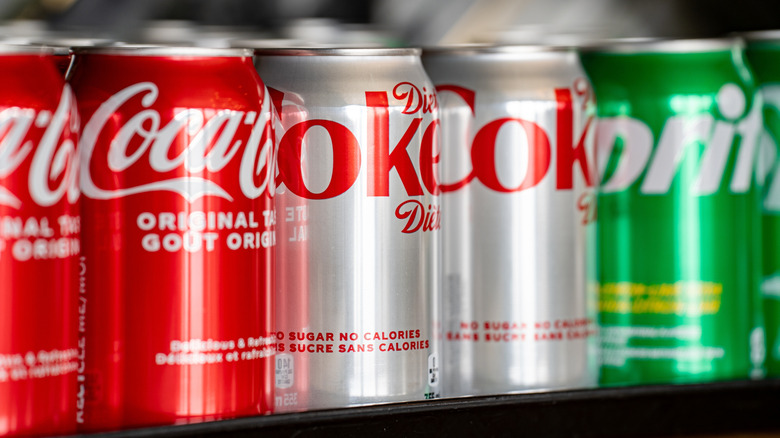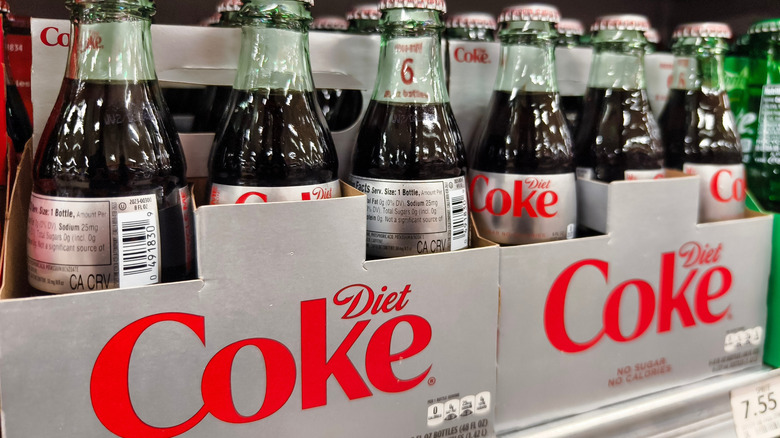Here's How Diet Coke Got Its Name
Coca-Cola is practically synonymous with America. There's only one other soda that rivals it in sales and prevalence, and that's its diet version. Diet Coke feels like it's just been here forever, with its familiar silver can and crisper, less sweet take on the iconic Coke flavor; the soda has its own huge, devoted following. But of course, Diet Coke had to originate somewhere, and one of the fascinating facts you may not know about Coca-Cola is that Diet Coke's name was one of the trickiest parts of the invention process.
Because Diet Coke is literally a sugar-free version of Coke, Coca-Cola weighed the potential of naming its new product "Sugar Free Coke" when it was developing it in 1980. However, it felt that this then cast regular Coke in a negative light. "Coke Light" also got kicked around as a possibility, but another brand was already using "light." The entire category of sugar-free sodas had at the time only recently been dubbed "diet" officially, by the market research firm Nielsen. So, Coca-Cola found a winner with that word — but how to use it? Coca-Cola's lawyers felt that if the "diet" had a capital "d," it made "Diet Coke" into a new noun and changed the trademark. For years, then, "diet" was written with a lowercase "d" to present it like an adjective modifying "Coke." Of course, that's changed in the years since, but it was a careful and pedantic road to the Diet Coke we know today.
Why Diet Coke exists in the first place
Soda evolved throughout the 19th century — Coca-Cola itself was established in 1886. People enjoyed sweet, fizzy soft drinks for nearly a century before health studies began to emerge and public awareness grew around the potentially harmful effects of consuming so much sugar on a regular basis. The first diet soda, a ginger ale with saccharin instead of sugar, debuted in 1952; 11 years later, Coca-Cola introduced its own zero-calorie soda, TaB. TaB became one of the country's most popular diet sodas, but Coca-Cola still struggled to meet consumer demand for sugar-free options. It decided to add Diet Coke to its lineup in 1982, but wanted it to be perfect — not taking over for TaB or Coke but existing as another option. That's why it was so intentional with the naming process.
Diet Coke did immediately start beating TaB in sales, but Coca-Cola hung on and produced its first diet soda all the way until 2020. TaB still had its die-hard devotees — some people stockpiled TaB ahead of its demise — but the soda just couldn't rival Diet Coke. Coca-Cola had yet another sugar-free alternative up its sleeve and unveiled Coke Zero in 2005. The name is also pretty clear: It's Coke with zero sugar. There's no real nutritional difference between Diet Coke and Coke Zero, but they use different sweeteners. In Europe, the latter is more available because of laws around sweeteners, but in the United States, Diet Coke reigns supreme.

